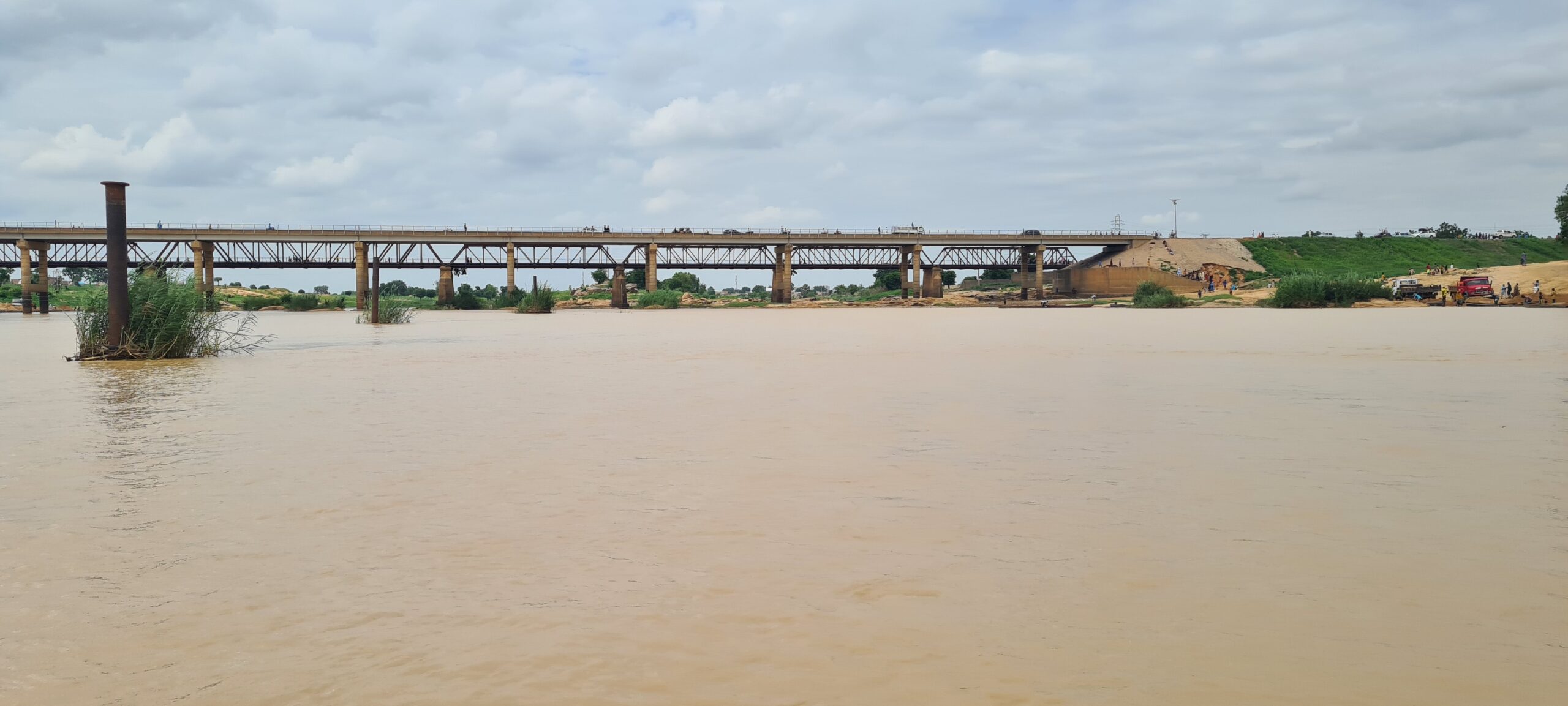Wudil River, known as Kogin Wudil in Hausa, is an important river that passes through Wudil town in Kano State. It is one of the small rivers that join to form the bigger Hadejia River, which flows through parts of northern Nigeria. The river shares its water with places like Bebeji, Karaye, and even connects to the famous Tiga Dam.
For years, the river has supported livelihoods through irrigation farming, animal watering, and household use providing sustenance for hundreds of families across the Local Government Area and offered jobs.
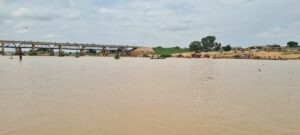
Fishermen also depended on it to catch fish. In the past, fishing was well-organized, and the local chief in charge of water, called Sarkin Ruwa, helped manage who had the right to fish.
But things have changed over the years. As more population, factories, the building of big dams like Tiga Dam and Challawa Gorge Dam upstream were built in Kano,
This affected the water quality and made fishing harder. Also, it reduced the amount of water that reaches Wudil River, especially during the dry season.
In a region where water bodies are increasingly polluted or neglected, especially with the growing effects of climate change in Nigeria as we have seen how rivers that people used for farming, fishing, and drinking are slowly drying up.
In the North-East, rivers like Ngadda in Borno have almost disappeared, while Lake Chad has shrunk so much that many fishermen have lost their jobs. In the North-Central, the Kaduna River no longer flows like before, the water level keeps going down, especially during the dry season. In the South, rivers like Osun and Ogun are dirty and unsafe because of too much waste from factories and people.
All across the country, changes in weather, and poor care of the environment are making rivers smaller and weaker. But in Wudil town, the people are trying their best to save their own river.
Bashir Ibrahim, 42, who lives in Wudil town expressed that the river is part of their heritage and they will do everything to protect it.
“The river has been in existence even before my great grandfather’s father was born. So it’s our heritage. My son works on the river bank as a canoe man. The river has helped a lot in providing jobs for us and there are youths that do “Yasa” which is the packing and selling of sand from the river to prevent it from drying.”
Hannatu Idris, 38 explained that women in the community play a big role in keeping the river clean because they are the ones who use it the most. She said women often lead by example, teaching their children proper waste disposal and reminding neighbours to protect the water.
Bello Ahmad, a youth seen along the river revealed that the river bank is always filled with a number of people.
He said it’s part of their community efforts to prevent the water from drying up as these people prevent those who want to pollute the water.
“You always see someone around the river bank, there’s no way a person can come with dirt, dump it to pollute the water and even farmers don’t do irrigation very close to the river,” he said.
Historians believe that people began living near the Wudil River at least as far back as the 9th century AD. However, despite the change and growth of population, the Wudil River has not dried up.
Why we’re protecting Wudil river ourselves – Youths
Mal. Abbas, a young sand seller at the Wudil River bank, says the river has greatly improved the economy of their town.
“This river has become our source of wealth. If you’re looking for any kind of sand in Kano, people will tell you to come to Wudil.”
Abbas explained that he buys sand known locally as yashi from canoe boys who fetch it directly from the river.
“We buy one canoe of sand at ₦1,200 and sell it at ₦1,700. That’s how we make our daily bread,” he added.
He stressed the importance of protecting the river, saying it does more than just flow through the town. It supports life.
“Our women come here to wash clothes, our cattle drink from it, and we even catch fish from the river,” Abbas said.
He noted, however, that fish are no longer found close to the bank as before. “They are moving further down the river, before there are times where you can catch many fishes because of what we call “Gobarar kifi” (fish run), you will see a lot of fishes and get tired of catching them, even the women help us in catching these fishes when it happens.
“It has been seven years since the last gobarar kifi. but we still catch different kinds of fish, especially tilapia,” he explained.
According to him, the river rises and falls with the seasons.
Abbas also expressed frustration that the government has done little or nothing to protect the river.
“We don’t even want the government or any NGO to come in. We are already protecting the river by doing yasa and guarding it from anyone who wants to pollute it ourselves. Everyday people sleep working at the river bank,” he added.
Local communities key to saving rivers – Climate Expert Zulaihat Danjuma
Zulaihat Danjuma, a climate expert, has stressed the importance of involving local communities in the protection and restoration of natural resources such as rivers, especially in rural areas.
Speaking in an exclusive interview with this reporter said that when communities lead the way in taking care of their environment, it results in real and lasting impact.
“Community involvement is significant. It comes in various forms, one of which is through community-led initiatives. For example, when people begin to practice proper waste disposal to prevent rains from washing trash into rivers, they are showing environmental awareness and responsibility.”
She added that such simple practices help prevent water pollution and protect the usability of rivers for daily life.
According to her, communities can also reduce river damage by using river resources like water and fish in a sustainable way. This includes adopting responsible fishing methods and limiting the amount of water drawn from rivers for farming or household use.
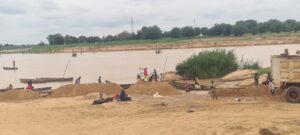
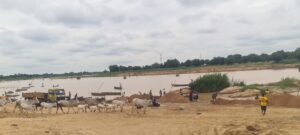
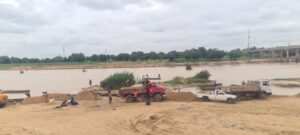
Simple actions to protect rivers – Expert
Danjuma outlined three simple actions that people can take to help protect rivers from pollution and drying up:
“Using water wisely by reducing water usage and avoiding waste, people can help maintain river flow and quality. Proper waste disposal by keeping waste away from water sources helps prevent pollution and reducing chemicals near river.
“Minimizing the use of pesticides and chemical fertilizers near rivers will stop harmful substances from washing into the water,” she explained.
Danjuma pointed out that one of the biggest problems rural communities face is poor water infrastructure.
“Many communities do not have proper access to clean water, so they rely heavily on rivers, streams, and open wells for drinking, farming, and household needs,” she said.
Another major issue is unequal water distribution, which leaves disadvantaged groups more vulnerable to water scarcity.
To solve these challenges, Danjuma suggested promoting water conservation, encouraging water reuse and recycling, improving local water management systems, supporting community-based water practices and teaching rainwater harvesting methods for farming.
On how to support communities to be more effective in river conservation, Danjuma said:
“Communities need enlightenment campaigns to better understand how to protect their environment. Inclusion in larger programs, community members should be included in activities organized by national and international NGOs and the government.
“Technical and financial help. There is the need for expert support in areas like ecology and funding for conservation efforts and building strong networks.
“We need to create partnerships between private, public, non-profit, and government stakeholders to support community action.”
Danjuma concluded by stressing that sustainable water protection will only work when the people closest to the rivers are empowered and supported to lead the way.
This story was written and produced as part of a media skills development programme delivered by Centre for Climate change and Food Security (CCCFS), Ghana Journalists for Environment, Science, Health and Agriculture (GJESHA), and The North Journals. The content is the sole responsibility of the author and the publisher.


